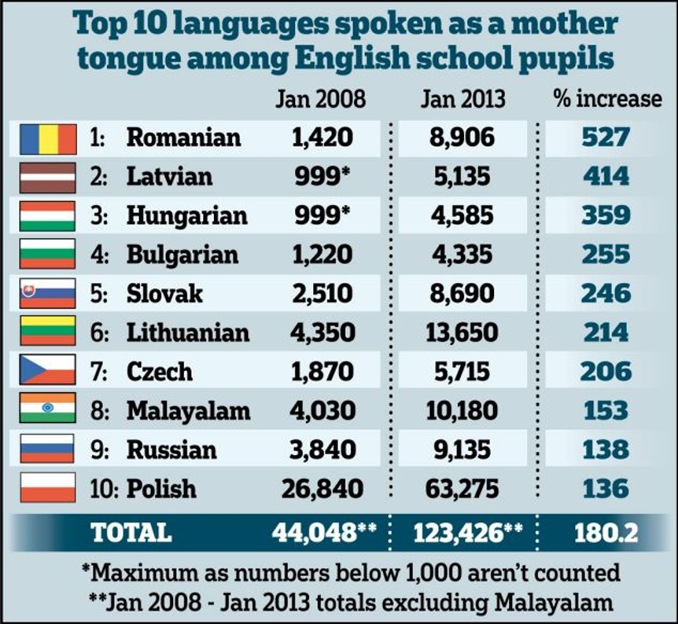Daily Mail
February 24, 2014

The influx of migrants from Eastern Europe has fuelled a huge rise in the number of schoolchildren who do not speak English as a first language.
In five years between 2008 and 2013 the number of Eastern European pupils who don’t speak English at home almost tripled from just over 44,000 to more than 123,000.
Astonishingly, one in nine English schools now has a majority of pupils who do not speak English as a first language. The official figures lay bare the enormous strain mass migration has placed on our schools.
The number of pupils who speak Romanian as a first language has seen the steepest increase – rising 527 per cent in five years. The number using Bulgarian at home has risen by 255 per cent.

However, the Education Department figures – obtained by the Daily Mail under Freedom of Information laws – only cover the five years before labour market restrictions on both countries were lifted last month, meaning the trend looks set to continue.
Schools are already struggling to cope with the demand for places, with some having to teach pupils in temporary classrooms.
Official estimates suggest that more than one million extra places will be needed in Britain over the next decade, which will bring the total required to eight million by 2022, the highest for 40 years.
The Government is already having to spend £5billion by 2015 on increasing the number of places to help ease the crisis.

Concerns have also been raised about the impact of the rising numbers on other services, including the NHS and social housing.
Educating children who do not speak English as their mother tongue also puts a huge financial strain on schools.
The cost of educating a non-native speaker has been estimated at up to £30,000 a year, compared to around £5,000 for other pupils, because of the need for intensive classroom assistance.
Anastasia De Waal, of think-tank Civitas, warned the strain on resources was damaging the education of both English children and those from recent migrant families.
‘In too many cases our schools are simply not set up to accommodate very high proportions of children who start school without fluent English,’ she said.
